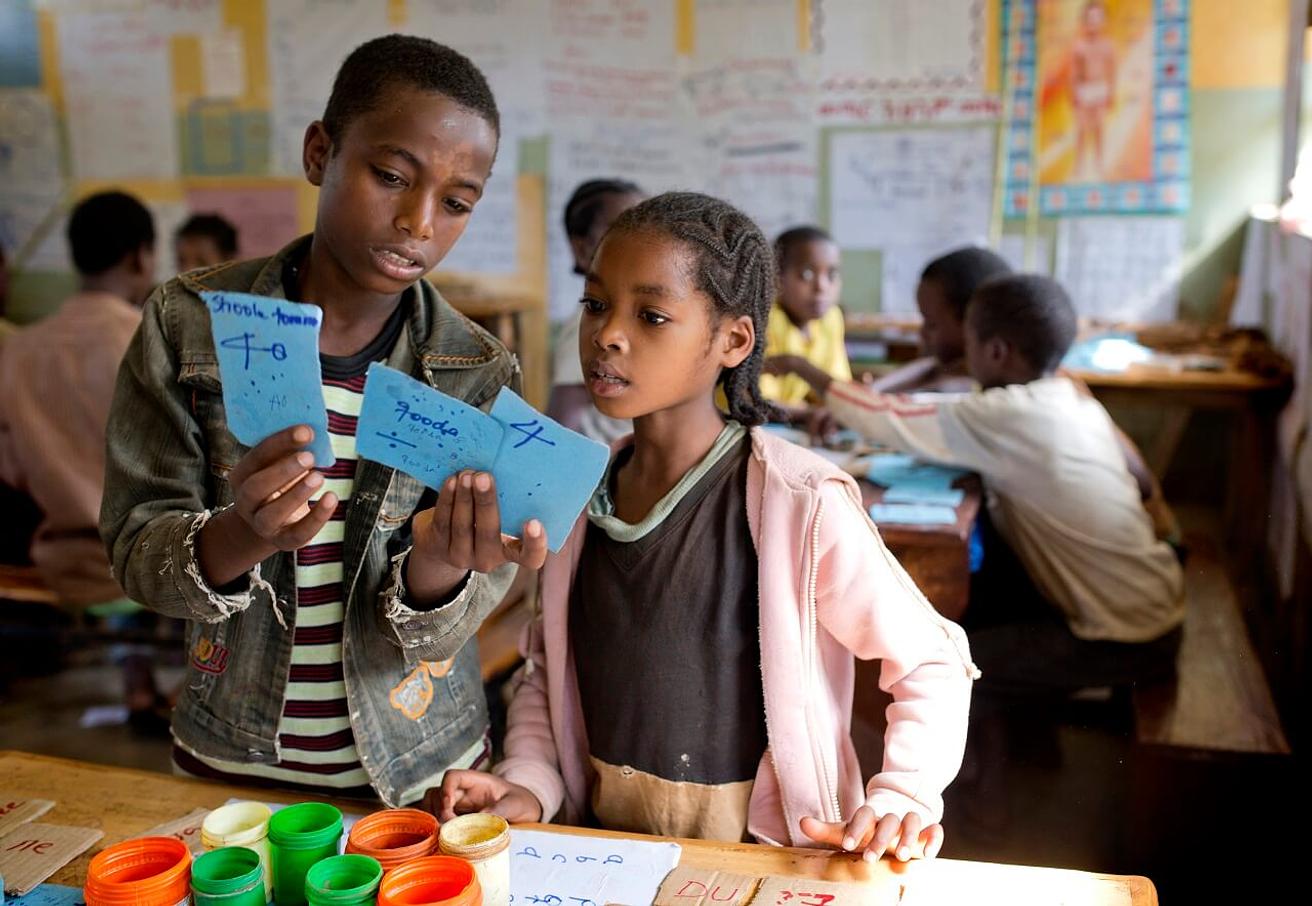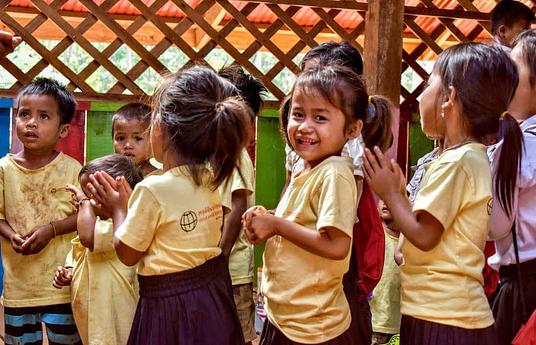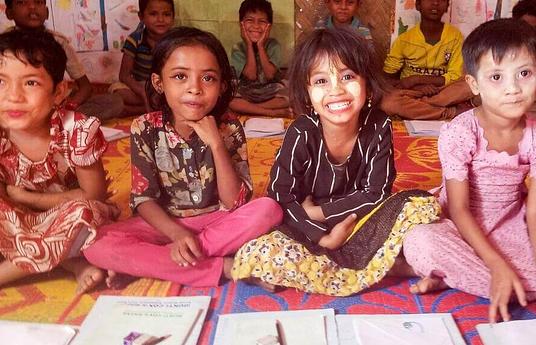The theme of this year’s Human Rights Day (10 December) is “Youth Standing Up for Human Rights.” Per the United Nations, “empowering youth to better know and claim their rights will generate benefits globally.” I agree wholeheartedly and believe one of the best ways to empower youth is through education and the life-changing experience of learning to read.
I grew up in India where I witnessed first-hand and was part of the transformation that better education opportunities provide. India, like many countries, still has a long way to go but my upbringing showed me that expanding education access and quality play a central role in empowering youth, both economically and socially.
In addition to unlocking the light in children, education has transformational effects across families, communities, and countries -- with benefits for the advancement of human rights. Indeed, around the world, data shows that education is highly correlated with democracy and there are links between education and civic participation levels.
Despite the numerous benefits of education, 258 million children around the globe are still out of school. Fifty-nine million of them are primary-school-age. This global learning crisis is a vital concern not only on Human Rights Day, not only with this year’s youth-focused theme, but every day.
Through my work at the Luminos Fund, an international education non-profit, I know that children who are out of primary school are uniquely challenged to develop essential skills like literacy, and to keep up with educated peers over time. I also know that positive change is very possible, even in the lowest-resourced corners of the world. At Luminos, our vision is of a world where no child is ever denied the chance to learn. We’re working to ensure children everywhere get a chance to experience joyful learning, especially those denied an education by poverty, conflict, and discrimination. To date, Luminos has helped 132,611 children experience rich education, with inspiring long-term results. And we’re deeply honored that HundrED has recognized our work in its Global Collections for three consecutive years.
Luminos currently operate classrooms in Ethiopia, Lebanon (where we work with Syrian refugees), and Liberia for primary-aged children with a focus on child-centered, activity-based learning, literacy and numeracy, and rich education. Many of our students are the first in their families to receive an education.

Our core offering is Second Chance, a 10-month program that empowers students to become functionally literate and numerate (also known as Speed School). We cover three years of school in one and offer four times as many reading hours as children would experience in a normal school.
The results are striking. In Liberia, for example, external evaluation in 2018-19 showed our students identifying 40 words per minute (wpm) on average upon completion of our 10-month program, up from only 5 wpm at the beginning. This is remarkable progress especially considering that only 6% of Grade 2 students in Liberia can read 40+ words per minute according to USAID.
Over ninety percent of our students advance into their local mainstream school after Second Chance, on average, continuing on the path to opportunity. External evaluation also shows that graduates of our programs complete primary school at twice the rate of their peers. Even six years after completing our program and transitioning into mainstream schools, Luminos children continue to fare better than their counterparts, with more confidence and ambition.
I am proud of our work and love to show visitors the magic of our classrooms: to witness the joy on a child’s face as he or she learns how to learn. Our friend Tom Hall, Head of Philanthropy Services at UBS Optimus Foundation, described visiting one of our Liberia classrooms: “To see a 10-year-old boy, who three months before couldn’t read, standing at the front of the classroom teaching his peers was truly inspirational, and the impact made all the more real when his mother explained what it could mean for her and her family.”
At Luminos, to be most successful, respectful, and resonant, we work diligently to adapt our efforts to the local context as well as to empower local communities and governments. We hire and train local community members as classroom facilitators (teachers), co-create every aspect of the program with our local implementing partners, and work to maintain an open dialogue with the government. “Our work is as much about celebrating the extraordinary aspects of the globe as it is remedying the shortcomings,” as Caitlin Baron, CEO of the Luminos Fund, recently observed.
To conclude, a child can learn valuable skills and information from his family, community, and friends even if he is not attending school. A child may be socially savvy and learn to do basic mental math from helping her parents at the market. Nevertheless, if a child remains illiterate, many doors stay closed – often with heartbreaking, long-term impact on his or her health and livelihood. It is a momentous challenge to become an informed citizen or navigate broader society if one does not know how to read. Education is an essential tool to empower children (and all people) to reach for their rights as humans and to unlock their potential. In the wise words of my colleague, Abba Karnga, Jr., who has spent his life fighting for education equality in Liberia:
This Human Rights Day, let’s joyfully celebrate the empowerment of youth and the promise of rich education. At Luminos, today and every day, we renew our urgent commitment to the millions of children who are not yet afforded this life-changing opportunity.
To learn more about Luminos Fund and their work with Speed School, visit their innovation page here.





